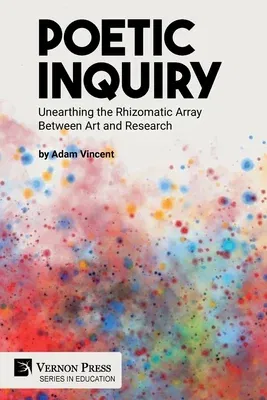This book identifies and describes facets of poetic inquiry, a research
method/methodology/tool that uses poetry in the research process
(information gathering, analysis and/or dissemination). Specifically,
this book explores how and why it is in use, provides revelations around
its unparalleled function(s) in research, and presents an
exemplification of a close reading approach, trialled in the study
framed in the book, that can draw further knowledge from the products of
poetic inquiry studies.
Poetic inquiry studies are somewhat established, and their findings are
being published in academic journals and books however, poetic inquiry
is currently undertheorized and noticeably missing from notable research
methods textbooks and publications that discuss the merits of arts-based
research. This may have the negative result of knowledge being lost or
overlooked that could hold answers to previously unanswered questions
that exist across the disciplines.
In response to this problem, this book (drawing from the doctoral
research study therein), highlights poetic inquiry's theoretical
underpinnings and pragmatic uses in research and scholarship that can be
adopted and adapted by new and established scholars. This is done using
the tenets of poetic inquiry as a frame and includes in-depth literature
review and an exploration of the findings of interview with four notable
poetic inquiry scholars in education in Canada. Detailed profiles for
each participant have been created to analyze and emphasize their
distinctive poetics and approaches to scholarship. Lastly, this book
considers ways that poetic inquiry can inform teaching practices, as
poetry is seen to permeate the participants' lives and influence their
approaches to teaching at the post-secondary level.
This book is written for both early career and well-established scholars
who have an interest in exploring ways that poetic inquiry (which
marries art and epistemology) can enhance their research and teaching
practices.


